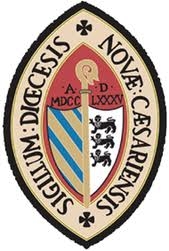We are a parish in the Diocese of New Jersey and the Episcopal Church, and part of the global Anglican Communion.
The Episcopal Diocese of New Jersey serves the lower two-thirds of the Garden State, with 144 congregations from Cape May to Elizabeth. Members of the Diocese seek to carry out lives of compassion and charity, and to spread the good news of the Gospel to a world that is hungry for God. Our Bishop, the Right Reverend William "Chip" Stokes, and many ordained and lay leaders around the diocese are committed to making disciples of Jesus Christ right here in New Jersey.
To learn more about the Diocese of New Jersey, including who we are, what we believe, and to discover many diocesan resources, click the button!
The Episcopal Church was formed in the United States in the aftermath of the Revolutionary War, and it's leadership and structure retains many of these influences. The Episcopal Church is led by the Presiding Bishop, Michael Curry, who serves for a 10-year term. Church-wide decisions are made at a General Convention every three years. Like our bicameral Congress, decisions in the Episcopal Church are made by two bodies: the House of Deputies and the House of Bishops. The Episcopal Church has a constitution and canons (church law), and makes resolutions which are guidelines on church policy. Currently, there are over 2 million Episcopalians in 109 dioceses.
To learn more about the Episcopal Church, including who we are, what we believe, and what we do, click the button!
Today the Anglican Communion is 39 autonomous national and regional Churches plus six Extra Provincial Churches and dioceses in 165 countries; all of which are in Communion - in a reciprocal relationship - with the Archbishop of Canterbury, who is the Communion's spiritual head. Rather than saying Anglicanism is Protestant – like Lutheranism or Calvinism – rather it would be more accurate to say it is catholic (believing it is still part of God’s one Church and having bishops as Church leaders) but reformed (in that it shares the principles of other Christian Churches that broke away from the Roman Catholic Church in 16th Century) in what has become known as the Protestant Reformation.
To learn more about the global Anglican Communion, including information on reconciliation, discipleship, and the Five Marks of Mission, click the button!




